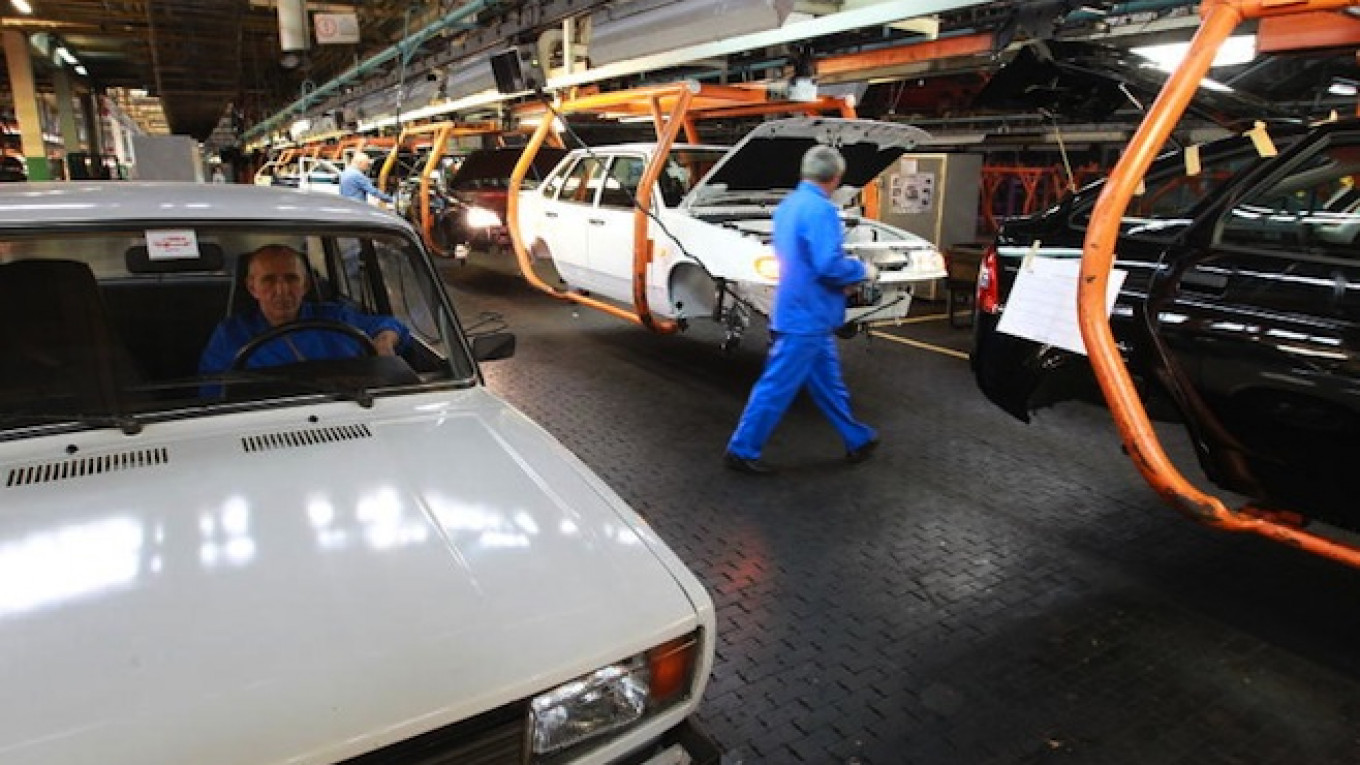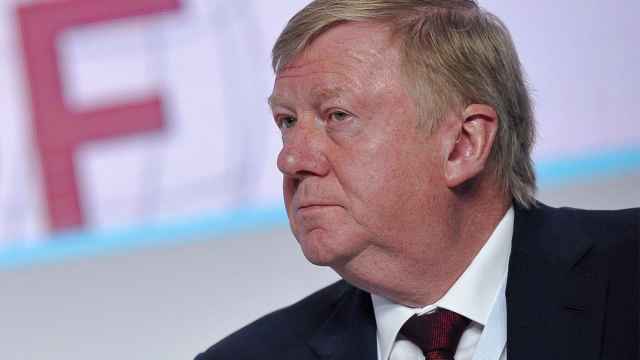A steep decline in the ruble has hammered Russian carmakers by driving up the cost of the foreign parts they rely on, forcing them to raise prices at home and making them uncompetitive abroad.
After a decade of annual sales growth in excess of 10 percent, the Russian car industry is now a victim of an economic crisis fueled by lower oil prices and Western sanctions over Moscow's role in the Ukraine crisis.
Domestic car sales have halved from their peaks in 2012-2013 when during some months the country ranked ahead of Germany as Europe's largest car market by sales, and the eighth biggest in the world. It now ranks only fifth in Europe and 12th globally.
The ruble's decline has pushed up Russian carmakers' costs as — unlike rivals in other leading carmaking nations — they heavily depend on imported parts, which they pay for in dollars and euros.
Back in 2012-2013, the ruble was trading at around 30 per dollar; the current rate is about 65 — which effectively makes imported parts about twice as expensive.
This has forced automakers to raise prices, a desperate move in a country where the economy shrank by 4.6 percent in the second quarter of 2015. Employers have cut staff and wages, while annual food price inflation is running at over 20 percent, leaving many Russians with little money for big purchases.
A renewed drop in the ruble — it has fallen 15 percent against the dollar since the beginning of July and is trading near a new six-month low — is set to prompt more price hikes and further erode sales.
"If the ruble steadies at the current rate until the end of the year, then the market is set to decline by 28-30 percent," said VTB Capital analyst Vladimir Bespalov.
"But if the ruble continues to weaken, prices will rise and the market could fall by up to 35 percent."
The overseas market also looks bleak.
While a weaker domestic currency usually makes exports more lucrative, Russian carmakers' reliance on expensive foreign components has left them uncompetitive against rivals from the likes of Japan and South Korea who source the vast majority of parts at home.
Russia's auto exports fell 27 percent to 49,000 vehicles in the first six months of 2015, year-on-year, customs data showed. The bulk of vehicle exports go to Commonwealth of Independent States (CIS) nations such as Belarus and Kazakhstan.
Volkswagen and Ford both import more than half of all parts used to assemble their cars in Russia. Even market leader Avtovaz, which produces Russian brand Lada among other models, sources about a fifth of its production abroad.
Stung by its low level of local manufacturing, U.S. carmaker General Motors Co quit Russia's ailing market in March.
Russian authorities have introduced incentives to encourage carmakers to gradually start producing most parts locally, but the most expensive and technologically advanced parts such as electronics, engines and suspensions are still imported.
KIA Motors, which produces Russia's second-most popular car — the New Rio hatchback priced at 460,000 rubles ($7,235) — has raised prices by 15 percent in the first six months of this year.
In the same period, average car prices have risen 18 percent year-on-year to 1.16 million rubles ($18,420) and sales have fallen 36 percent, according to research group Autostat and the Association of European Businesses.
"The devaluation of the ruble increases costs for manufacturers," said Yulia Dytchenkova, director of Mazda dealer Rolf Khimki. "They are reaching a critical point where the further revision of price lists is inevitable."
A Message from The Moscow Times:
Dear readers,
We are facing unprecedented challenges. Russia's Prosecutor General's Office has designated The Moscow Times as an "undesirable" organization, criminalizing our work and putting our staff at risk of prosecution. This follows our earlier unjust labeling as a "foreign agent."
These actions are direct attempts to silence independent journalism in Russia. The authorities claim our work "discredits the decisions of the Russian leadership." We see things differently: we strive to provide accurate, unbiased reporting on Russia.
We, the journalists of The Moscow Times, refuse to be silenced. But to continue our work, we need your help.
Your support, no matter how small, makes a world of difference. If you can, please support us monthly starting from just $2. It's quick to set up, and every contribution makes a significant impact.
By supporting The Moscow Times, you're defending open, independent journalism in the face of repression. Thank you for standing with us.
Remind me later.






